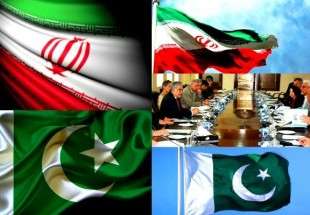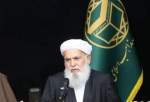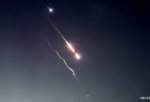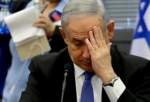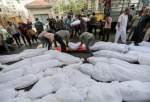Since that hyperbolic New Year tweet from the megalomaniac American president, in which he launched broadside against Pakistan, the relations between the two ‘allies’ have deteriorated.
Leaders of the two countries have been firing salvos at each other in recent months, making accusations and counter-accusations. With the gap widening between the two countries, Islamabad has finally realized who its genuine friends are and who pretend to be friends.
Trump accused Islamabad of ‘deception’ and threatened to cut foreign aid, to which Islamabad reacted sharply. Pakistan’s Prime Minister said America was losing the war in Afghanistan and now trying to put the blame on Pakistan. One of the firebrand opposition politicians in Pakistan called the American president ‘shameless’, and almost everyone seems to hold that view now.
With the US and Pakistan announcing their acrimonious divorce publicly, political pundits and commentators are predicting the future course of action. China – which is one of the fastest growing economies and not liked by the Uncle Sam (US) – has become the new ‘best friend’ for Islamabad. Trump’s vile tweet, followed by outlandish accusations against Pakistan, some analysts argue, was a reaction to the growing ties between Islamabad and Beijing.
Meanwhile, another country that has appeared on the radar of Islamabad recently is Iran. The two countries have shared friendly ties for decades, however, due to Islamabad’s proximity with Washington and Riyadh in the past, the two friendly countries could never explore the possibilities of their deep political and strategic ties.
Pakistan and Iran are geographically connected and culturally linked to each other, and both the countries have historically enjoyed friendly relations. It is pertinent to mention here that Iran was one of the first countries to reach out to the newly formed Pakistan in 1947 following the partition of British India.
Being the Islamic republics with sizeable Muslim populations, developing people-to-people contacts becomes easy. There is also enormous potential for the two neighbors to enhance cooperation in cultural, economic, political and military spheres. That has not happened till now because of various factors, most importantly the overwhelming influence of America in the power corridors of Islamabad.
Since the Islamic revolution, Iran has taken giant strides notwithstanding numerous challenges, including wars and draconian economic sanctions imposed by the West. The country refuses to be bullied and has refused to surrender before the mighty powers of the West. Pakistan has been an all-weather friend for Iran all this time, even though Western powers, especially the US, have tried hard to put a spanner in their friendship. As political commentators in the region believe, the time has come for Islamabad to express itself freely and get its priorities right, in terms of foreign policy and interior affairs.
Recently, a high-level Pakistani delegation headed by Attorney General of Pakistan (AGP) visited Iran and held talks with senior Iranian officials. The visiting delegation was asked to monitor the activities of Islamic State group on Pakistan’s border with Afghanistan. It is widely believed that the group is assisted by the US, since the US and Israel wish to turn Pakistan and Iran into next ‘Syria, Iraq, Libya and Afghanistan’.
For now, the relations between Pakistan and the US have sunk to a new low and it seems highly unlikely that the ties would improve anytime soon. Washington’s punitive actions against Pakistan — suspending military assistance, cancelling Pakistan’s non-NATO ally status, drone strikes inside Pakistan, instigating international financial institutions to suspend loans to Pakistan — will only have uglier repercussions on their bilateral ties. Pakistan has already paid heavy price for helping America in its ‘war against terrorism’ and now finds itself at crossroads.
Washington’s hostile policy towards Pakistan would only bring Pakistan closer to regional powers: China, Russia and Iran. These countries are considered important players in the region and they all enjoy tremendous influence and goodwill in Pakistan. Recently, Islamabad declared its support to China, Russia and Europe’s efforts to save 2015 Iran nuclear deal, also known as Joint Comprehensive Plan of Action (JCPOA), and strongly condemned America’s unilateral decision to walk out of the deal.
Pertinently, the Iranian and Pakistani defense ministers held talks recently to give boost to bilateral defense cooperation and stressed to utilize their capacities to bolster economic growth and security. Also, the two countries agreed to take bilateral trade to $5 billion in the coming years from $1.5 billion. Furthermore, the train service between Tehran and Islamabad would be a major breakthrough, which is slated to commence this September.
And, talks are also going on to set into motion free trade agreement (FTA), which would provide further impetus to their bilateral cooperation. Besides that, the revival of Iran-Pakistan gaspipe line project is the need of the hour as it will help Pakistan to overcome energy crisis.
To be a powerful player in the region and exert its influence without any foreign interference, Pakistan must prioritize its own interests and make efforts to be politically and economically independent and self-reliant. And, it is essential for Pakistan to not allow any foreign power to violate its territorial integrity and dictate terms to it. That will be a good start towards becoming a powerful and important regional power.
Born in Parachinar Pakistan, the writer currently pursuing Masters in Islamic Finance from Ahlulbayt International University. He can be reached at turi.ishtiaq@gmail.com

